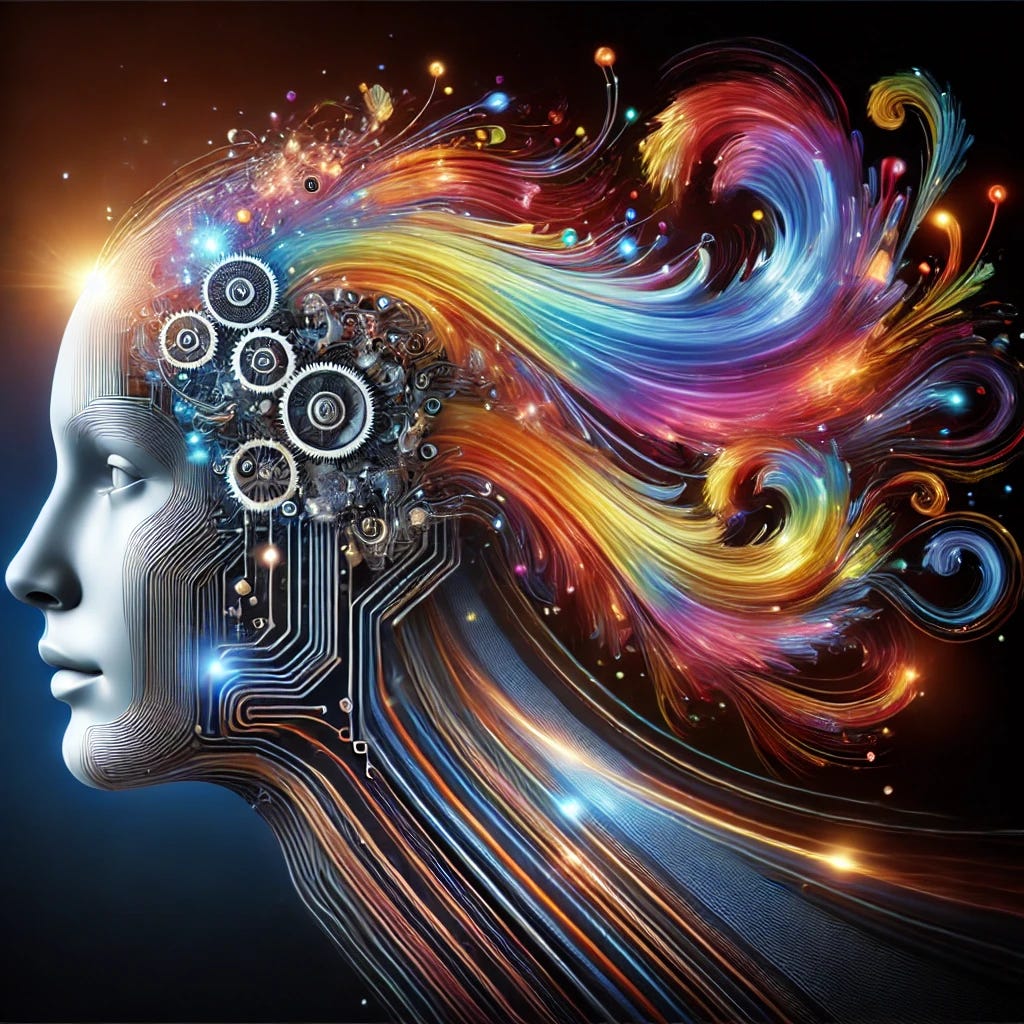Unveiling the Creativity Potential of AI
Progress, Challenges, and the Path Forward
Artificial Intelligence (AI) has achieved significant progress in recent years, particularly within the creative processes. A recent scholarly work titled "Creativity in AI: Progresses and Challenges" by Mete Ismayilzada and colleagues, published on October 24, 2024, provides a comprehensive examination of the current advancements as well as the enduring challenges associated with AI-driven creativity.
Advancements in AI Creativity
The study identifies several domains where AI has exhibited noteworthy creative capabilities:
Art and Design: Generative AI models have been leveraged to create visual art, fashion design, and even architectural concepts. These models have demonstrated an ability to produce novel and aesthetically compelling designs that are often indistinguishable from those created by human artists. Such outcomes indicate that AI systems are capable of synthesizing intricate patterns and styles, thereby contributing meaningfully to the evolution of visual and applied arts.
Music Composition: AI systems have also been developed to compose music across diverse genres, exhibiting an understanding of complex musical forms and structures. These systems not only replicate but can also innovate upon traditional musical conventions, enabling new forms of musical expression that merge algorithmic precision with artistic nuance.
Literature and Poetry: Advanced language models have demonstrated their capacity to generate poems and narratives that evoke human emotions and display elements of creativity. Notably, empirical studies have indicated that human evaluators frequently rate AI-generated poems as more emotionally resonant and creatively stimulating than those authored by celebrated poets such as Shakespeare and Lord Byron. This finding underscores AI's potential to engage with and even challenge traditional human conceptions of literary creativity. The Scottish Sun
Challenges and Considerations
Despite these advancements, the study highlights several challenges that must be critically addressed:
Originality vs. Imitation: AI models are inherently reliant on existing datasets, which raises fundamental questions regarding the originality of their outputs. The distinction between authentic creativity and mere imitation remains a pivotal challenge, as AI's generative processes are often constrained by the limitations of their training data. This dependency complicates assessments of true novelty within AI-generated content.
Ethical Implications: The deployment of AI in creative fields introduces substantial ethical dilemmas, including issues of authorship, intellectual property rights, and the potential displacement of human creators. Determining ownership of AI-generated works remains an unsettled area, necessitating the development of robust frameworks to navigate the complex interplay between machine contribution and human oversight.
Bias and Diversity: AI systems are susceptible to perpetuating biases inherent in the training data, which can lead to a lack of diversity in the generated creative content. Such biases pose significant risks to the equitable representation of different cultural and artistic perspectives, potentially reinforcing stereotypes and limiting the inclusivity of creative expressions.
The Path Forward
To effectively harness the creative potential of AI while addressing the aforementioned challenges, the study proposes several strategic approaches:
Collaborative Creativity: Promoting human-AI collaboration can capitalize on the respective strengths of both entities, leading to more innovative and diverse creative outcomes. This synergy allows human intuition and emotional depth to complement the computational capabilities of AI, thus fostering richer and more nuanced creative processes.
Transparent Processes: Ensuring transparency in AI processes is critical for understanding and mitigating biases, thereby contributing to more equitable creative practices. Transparent AI systems can provide insights into decision-making pathways, facilitating greater accountability and trust in AI-generated outputs.
Ethical Frameworks: The establishment and adherence to rigorous ethical guidelines will be essential for navigating the complexities associated with AI's role in creative domains. These frameworks must address questions of authorship, value attribution, and societal impact to ensure that AI augments rather than undermines human creativity.
Conclusion
In conclusion, although AI has made substantial inroads into creative fields, it is imperative to address the associated challenges with careful deliberation. By fostering human-AI collaboration, promoting transparency, and upholding ethical standards, it is possible to develop AI systems that not only enhance human creativity but also contribute meaningfully to the cultural and artistic richness of society.
For a more comprehensive exploration, refer to the full study: "Creativity in AI: Progresses and Challenges" by Mete Ismayilzada et al.


